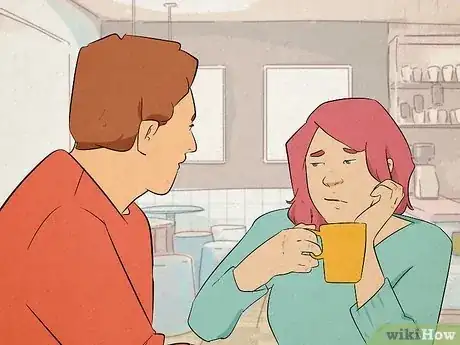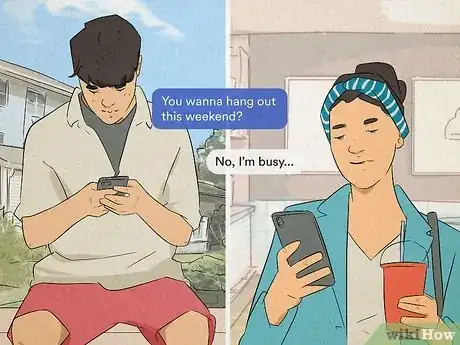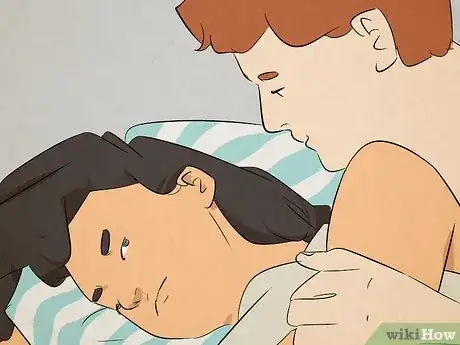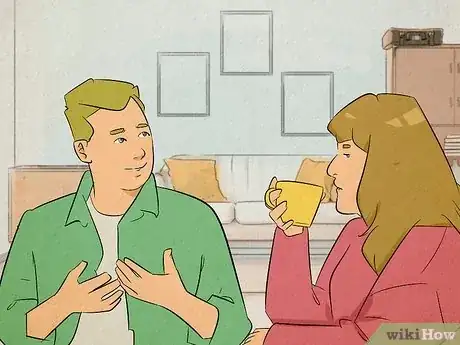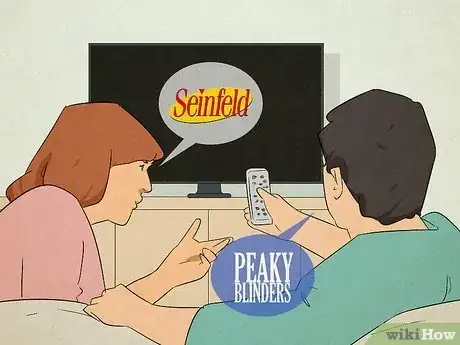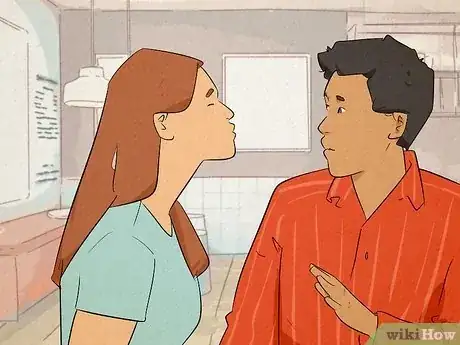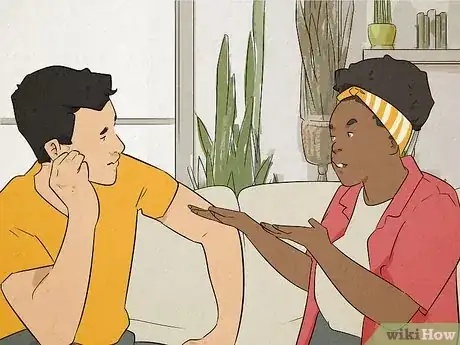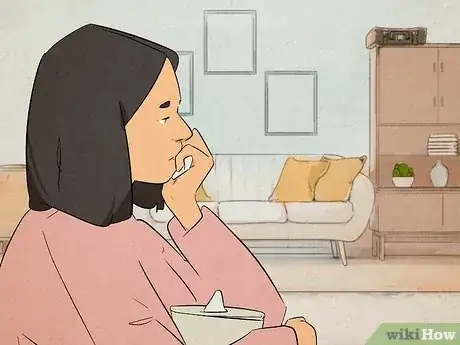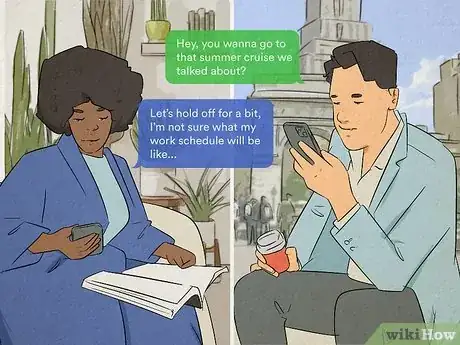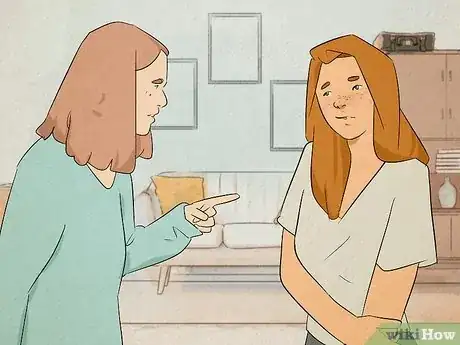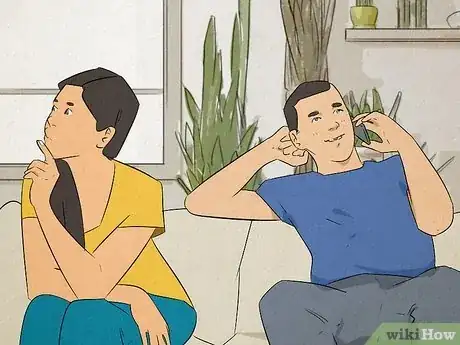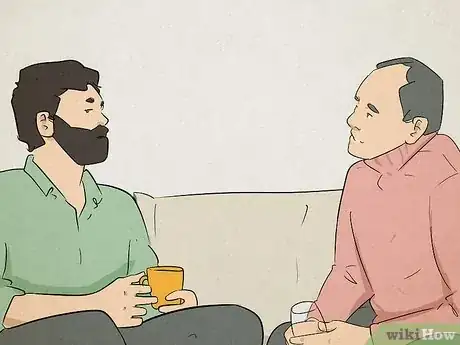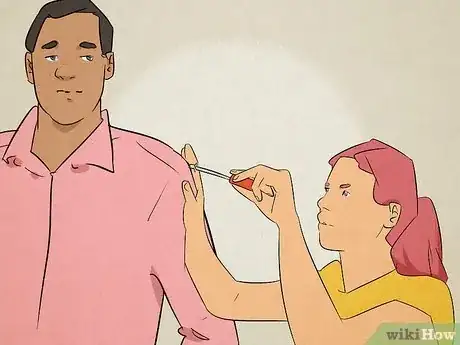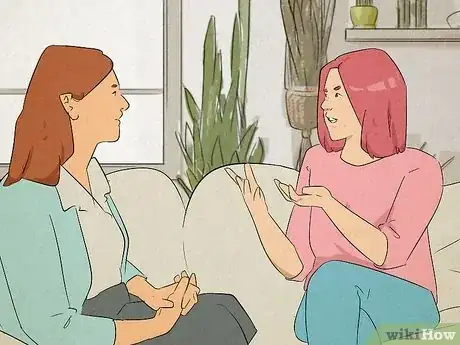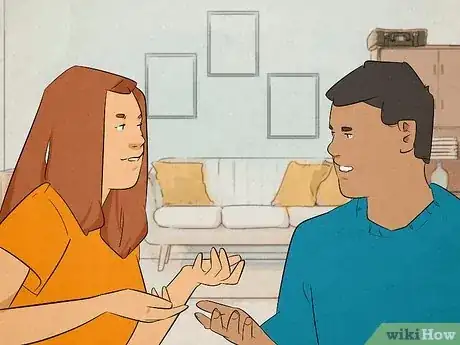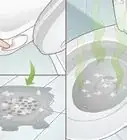This article was co-authored by wikiHow Staff. Our trained team of editors and researchers validate articles for accuracy and comprehensiveness. wikiHow's Content Management Team carefully monitors the work from our editorial staff to ensure that each article is backed by trusted research and meets our high quality standards.
There are 13 references cited in this article, which can be found at the bottom of the page.
This article has been viewed 2,538 times.
Learn more...
Do you feel like you’ve lost the spark in your relationship? How can you tell whether you and your partner are simply going through a rough patch, or whether you don’t love them anymore? It’s normal for romantic relationships to have their ups and downs, but there are tell-tale clues that your fading feelings are more than just a passing phase. We’ve put together a list of 20 red flags that you’ve fallen out of love with your partner–if you can relate, it’s a good sign that your heart is no longer in it. Whether you want to reignite your relationship or you’re ready to let it go, this article will give you the clarity you’re seeking.
Things You Should Know
- If you don’t want to connect with your partner on an emotional level, you may not be fully invested in your relationship.
- When feelings of pride and admiration are replaced by feelings of disdain and irritation, it might be a sign that you don’t love your partner anymore.
- If you don’t want to make plans with your partner, it’s a red flag that you may not see a future with them.
- A change in physical intimacy and PDA may indicate that your feelings toward your partner are more platonic than romantic.
Steps
You’re bored.
-
If you feel indifferent towards your partner, the magic might be gone. Maybe your interactions have become predictable and you pay less attention to each other. Butterflies have been replaced by boredom. While it’s normal for the fireworks to mellow over time, feeling apathetic towards your partner is a big clue that you may not be in love.[1] X Research source
- If you want to rekindle the magic, be proactive about creating interesting experiences and exciting adventures with your partner. Travel somewhere new, discuss thought-provoking podcasts, or get involved with a cause you’re both passionate about.[2] X Research source
You don’t want to spend time with them.
-
If you feel relief when they aren’t around, you might be drifting apart. Does the thought of hanging out with them irritate you or fill you with dread? Are you making up excuses to avoid seeing them? Do you feel smothered by their attention? If the answer is yes, it might be time to let the relationship go.[3] X Research source
- If your relationship has reached this stage, it’s difficult to make it work. Give yourself permission to walk away from the situation if you need breathing room.
You’re not as interested in them sexually.
-
You might be better off as friends if intimacy has waned. Sex habits vary from couple to couple; the issue isn’t how much sex you have, but whether the frequency has changed and whether both partners’ needs are still being met. Your feelings may be more platonic than romantic if you don’t want to be close to your partner.[4] X Research source
- If you’re looking to spice things up in the bedroom, a professional sex therapist may be able to help.[5] X Research source
- Some ebb and flow of sexual intimacy is normal. There are also some medical conditions and prescription drugs that impact libido, so keep that in mind.
- Intimacy doesn’t have to be sexual; some couples mutually choose to have asexual partnerships. In this case, question whether you’re still displaying intimacy in ways that are meaningful to you and your partner. If your habits have changed, it’s an indicator that your feelings have too.[6] X Research source
You don’t miss them.
-
You might be falling out of love if your partner doesn’t cross your mind. Do you remember how often you used to think of your partner when you were falling in love? When was the last time you truly missed your significant other? If you don’t think about your partner when they’re gone, it’s a clue they’re no longer a primary focus in your life.[7] X Research source
- Not every relationship is destined to work out. It doesn’t mean that you failed; some partnerships just aren’t meant to be.
You aren’t proud of your partner.
-
If you feel disdain for your partner, that could be a dealbreaker. For example, you might find yourself rolling your eyes when they talk about their disc golf score or their idea for a new app. When two people are in a healthy relationship, they admire each other and support each others’ endeavors. If you aren’t proud of your partner, perhaps it’s time to break up.
You end up in power struggles instead of compromising.
-
If you care about winning arguments, you aren't on the same team. You might be locked in frequent power struggles with neither of you wanting to give an inch. Disagreements may include ranting, pleading, or guilt tactics. If you two aren’t interested in negotiating, you may be more focused on controlling each other than caring for each other.[8] X Research source
- Couples therapy can help partners learn strategies for disagreeing more productively. If you want to give your relationship another chance, consider having sessions with a licensed therapist.
You don’t share common interests.
-
Without common ground, your relationship's foundation may crumble. Perhaps you were so infatuated in the “honeymoon phase” that you didn’t notice that your interests don’t overlap. Now that things have settled down, you two may be going your separate ways because you aren’t a good match.[9] X Research source
- While cultivating separate interests is important for a balanced relationship, it’s also essential to enjoy shared interests with your partner.
- If you want to save your relationship, consider developing a hobby you both enjoy. Try taking a class together, joining a club, or volunteering in your community.
You no longer want to engage in PDA.
-
You might be losing interest if you stop touching your partner in public. Did you used to hold hands while walking the dog? Did you like to steal smooches in the movie theater? Did you snuggle up next to your partner at parties? If you no longer want to display affection, you could be feeling ready to move on.
Your partner’s quirks annoy you.
-
You might not be in love if their quirks have become your pet peeves. Maybe you used to think it was adorable when they sang opera in the shower, but now you beg them to stop. It might have been cute when they'd steal your fries with a grin, but now you’re tempted to slap their hand away. If their behavior gets under your skin, it’s a clue the balance of your relationship has shifted.[10] X Research source
You keep comparing them to others.
-
If you feel your partner falls short of others, you might be over them. Maybe you’re comparing your partner to your best friend’s significant other and feel like your bestie got the better deal. Or perhaps you’re secretly measuring your partner against your ex. If you feel like your partner is lacking and you could do better, it’s probably time to think about ending your relationship.[11] X Research source
You feel stuck.
-
If you’re staying due to complex circumstances, may not be in love. You might not feel like you can break free because you “owe” your partner in some way. It could be that you’re afraid of being on your own, or you don’t have the financial resources to be independent.[12] X Research source If you’re with them because of duty, convenience, or habit, your relationship might not have a solid foundation.
- Ask yourself what the glue is that’s holding your relationship together. If your primary reason for staying is anything other than, “Because I want to be with them,” you may not really be in love.[13] X Research source
You aren’t communicating.
-
If you don’t bother to talk things over, it’s a clue that you’ve checked out. Maybe most of your communication is over text: “Did you feed the cat?” “We’re out of bread.” “Have you seen my phone charger?” If you don’t feel like chatting with your partner about your day, your weekend plans, or what’s been bugging you, you may be letting go.[14] X Research source
- Are you hoping to revive your relationship? Leave your phones at home and visit a coffee shop or take a stroll around the neighborhood together. Create opportunities to chat and connect without distractions.[15] X Research source
You avoid making future plans together.
-
If you dodge making plans, you may not want them in your life. If your partner wanted to book a summer cruise, you might say, “Let’s hold off for a bit, I’m not sure what my work schedule will be like.” You may even hesitate to hit “purchase” on tickets for a concert that’s a couple months out. This could indicate that you envision a future without your partner by your side.[16] X Research source
You blame your partner.
-
It’s a red flag if you usually feel like things are your partner’s fault. For example, you might get upset if they didn’t pick up milk (even though you didn’t ask them to). Shouldn’t they have realized you were out? When you consistently blame your partner, resentment hangs over the relationship like a thundercloud. It hints that your relationship may be stormy and faltering.[17] X Research source
- If you’d like to change this habit, practice active listening during conflicts. Instead of playing the blame game, listen without judgment, clarify with open-ended questions, and validate your partner’s feelings.[18] X Research source
You fantasize about other people.
-
You may be emotionally detached if you daydream about other people. Does the grass always seem greener somewhere else? Are you curious if you’d be happier with your coworker? Have you been imagining what it would be like to hook up with your ex again? If so, your relationship might not be on track.[19] X Research source
You shut them out.
-
If you put up emotional walls, it may signal that you’re not fully invested. You might put up a facade and keep your interactions at a superficial level. You don’t want to be vulnerable or let your partner get too close. The longer you do this, the greater the emotional distance grows, leaving both of you feeling empty and unfulfilled. If this is happening, it’s a sign that you’re growing apart.[20] X Research source
- Sometimes people have difficulty opening up to others because of painful past experiences. Or, they may not have been raised in an environment that encourages vulnerability. If this applies to your situation, therapy can help.
You want to change them.
-
If you want to “fix” your partner, you may not love who they are now. Maybe you wish they’d be less introverted and more social. You might feel like everything would be great if they'd just go to church with you. In that case, you could simply be in love with a hypothetical, future version of your partner.[21] X Research source
You often complain about your partner.
-
If you constantly vent about your relationship, it may not be working. Everybody needs to let off steam now and again, and seeking support from a friend isn’t a bad thing. But research shows that complaining about your partner correlates with how invested and satisfied you are in your relationship. If you find yourself complaining to others a lot, it’s a clue that you might not really in love.[22] X Research source
- Happy couples don’t complain about each other often, but when they do, it's typically about specific events rather than their partner’s character. For example, a happy partner might say, “I’m annoyed they're working late,” while an unhappy one might say, “They’re selfish for working late.”
- If you’d like to stop complaining and repair your relationship, try approaching the issue with a solutions-oriented mindset. Be willing to listen, ask for advice, and problem solve together.
You feel like you’ve lost yourself.
-
If you miss who you used to be without your partner, that’s a red flag. Do you feel like you’ve sacrificed too much for your relationship? Maybe you’ve given up hobbies, lost touch with friends, or stifled parts of your personality.[23] X Research source Over time, this can make you feel even lonelier than being single. If you no longer feel like yourself, that’s a good indicator that it could be time to move on.
You have conflicting goals.
-
You may have outgrown each other if you have different life goals. Maybe when you first met, you wanted the same things. As you both evolved over time, perhaps you grew in different directions. Maybe they want to go to school or take a job in another city. Perhaps you want kids and they don’t. If you’ve reached an impasse, it might be time to end your relationship.[24] X Research source
Other wikiHows

 How to Relieve & Prevent Headaches & Migraines Fast
How to Relieve & Prevent Headaches & Migraines Fast
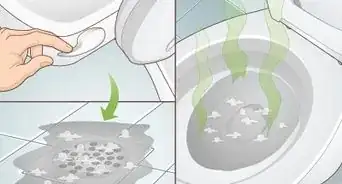 Best Ways to Unclog a Toilet
Best Ways to Unclog a Toilet

 How to Take a Screenshot on a Windows PC: 8 Simple Tricks
How to Take a Screenshot on a Windows PC: 8 Simple Tricks
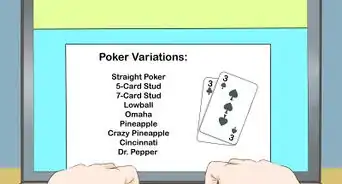
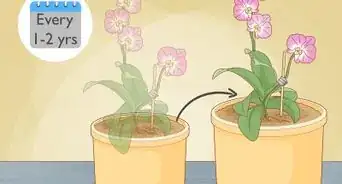 How to Take Care of Potted Orchids
How to Take Care of Potted Orchids

References
- ↑ https://www.psychologytoday.com/us/blog/rediscovering-love/201405/when-its-time-let-relationship-go
- ↑ https://www.psychologytoday.com/us/blog/rediscovering-love/201405/when-its-time-let-relationship-go
- ↑ https://youqueen.com/relationship/the-7-signs-its-time-to-end-a-relationship/
- ↑ https://www.cosmopolitan.com/uk/love-sex/relationships/g820/how-to-know-your-relationship-is-over/
- ↑ https://www.cosmopolitan.com/uk/love-sex/relationships/g820/how-to-know-your-relationship-is-over/
- ↑ https://www.betterhealth.vic.gov.au/health/healthyliving/relationships-and-communication
- ↑ https://www.psychologytoday.com/us/blog/magnetic-partners/201803/6-signs-youve-fallen-out-love
- ↑ https://www.psychologytoday.com/us/blog/rediscovering-love/201405/when-its-time-let-relationship-go
- ↑ https://www.psychologytoday.com/intl/blog/just-listen/200911/10-habits-happy-couples
- ↑ https://www.psychologytoday.com/us/blog/rediscovering-love/201405/when-its-time-let-relationship-go
- ↑ https://www.psychologytoday.com/us/blog/cutting-edge-leadership/202101/10-subtle-signs-falling-out-love-someone
- ↑ https://evolutioncounseling.com/resentment-in-relationships/
- ↑ https://www.datingadvice.com/gay/signs-youre-falling-out-of-love-lgbt
- ↑ https://www.cosmopolitan.com/uk/love-sex/relationships/g820/how-to-know-your-relationship-is-over/
- ↑ https://www.cosmopolitan.com/uk/love-sex/relationships/g820/how-to-know-your-relationship-is-over/
- ↑ https://www.cosmopolitan.com/uk/love-sex/relationships/g820/how-to-know-your-relationship-is-over/
- ↑ https://evolutioncounseling.com/the-buildup-of-resentment-in-relationships/
- ↑ https://www.datingadvice.com/gay/signs-youre-falling-out-of-love-lgbt
- ↑ https://www.cosmopolitan.com/uk/love-sex/relationships/g820/how-to-know-your-relationship-is-over/
- ↑ https://www.psychologytoday.com/us/blog/friendship-20/201712/7-signs-youd-be-better-ending-relationship
- ↑ https://www.psychologytoday.com/us/blog/friendship-20/201712/7-signs-youd-be-better-ending-relationship
- ↑ https://www.fatherly.com/love-money/when-complaining-about-your-spouse-crosses-the-line
- ↑ https://kidshealth.org/en/teens/healthy-relationship.html?ref=search
- ↑ https://youqueen.com/relationship/the-7-signs-its-time-to-end-a-relationship/
About This Article

